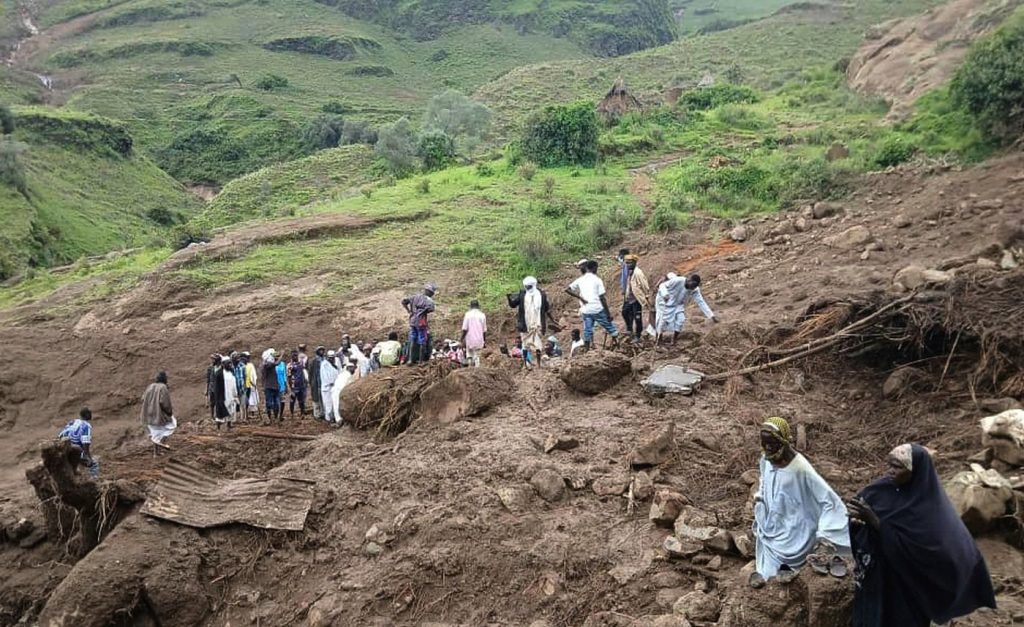CAIRO (AP) – Sudanese authorities have reported the recovery and burial of hundreds of bodies following a landslide that occurred over the weekend in the western region of Darfur. The head of the Civil Authority in the Liberated Territories, Mujib al-Rahman al-Zubair, stated in a video address to the Associated Press that rescue teams, aided by local aid workers, managed to reach 375 bodies. Unfortunately, many more remain trapped beneath the debris.
Al-Zubair expressed his condolences, stating, "May the victims of this devastating incident receive mercy," as he and dozens of individuals gathered at the landslide's site to pray for the deceased. He is currently leading ongoing rescue missions, with hopes of recovering additional bodies and potentially finding survivors, despite facing significant obstacles due to a lack of equipment and resources.
The landslide, which occurred on August 31, was preceded by days of heavy rainfall in the village of Tarasin, situated in the Marrah Mountains. Mohamed Abdel-Rahman al-Nair, a spokesperson for the Sudan Liberation Movement-Army, announced that the landslide could have resulted in the deaths of as many as 1,000 individuals. The United Nations’ Office for the Coordination of Humanitarian Affairs has echoed similar estimates but noted the difficulty in confirming the death toll due to the area's inaccessibility.
The U.N. has mobilized efforts to support the affected region, which is located more than 900 kilometers (560 miles) west of Sudan’s capital, Khartoum. Al-Nair emphasized the "catastrophic humanitarian situation" caused by the landslide, urging an immediate response from the international community to provide essential food and shelter for those who have lost everything.
The Marrah Mountains, where the disaster struck, is recognized as a volcanic region, reaching heights of over 3,000 meters (9,840 feet) at its peak. It is a UNESCO World Heritage site, known for its cooler temperatures and greater rainfall compared to surrounding areas. This is not the first deadly incident in the region; a smaller landslide in 2018 killed at least 19 people and injured several others, according to reports from the now-disbanded United Nations-African Union mission in Darfur.
Currently, Sudan is grappling with one of the most severe humanitarian crises in the world, exacerbated by a civil war that erupted in April 2023 in the capital city of Khartoum. This conflict, fueled by escalating tensions between the Sudanese army and the rival paramilitary Rapid Support Forces, has led to the deaths of over 40,000 individuals and displaced an estimated 12 million people. The humanitarian situation is dire, with certain regions experiencing famine and outbreaks of diseases such as cholera.











